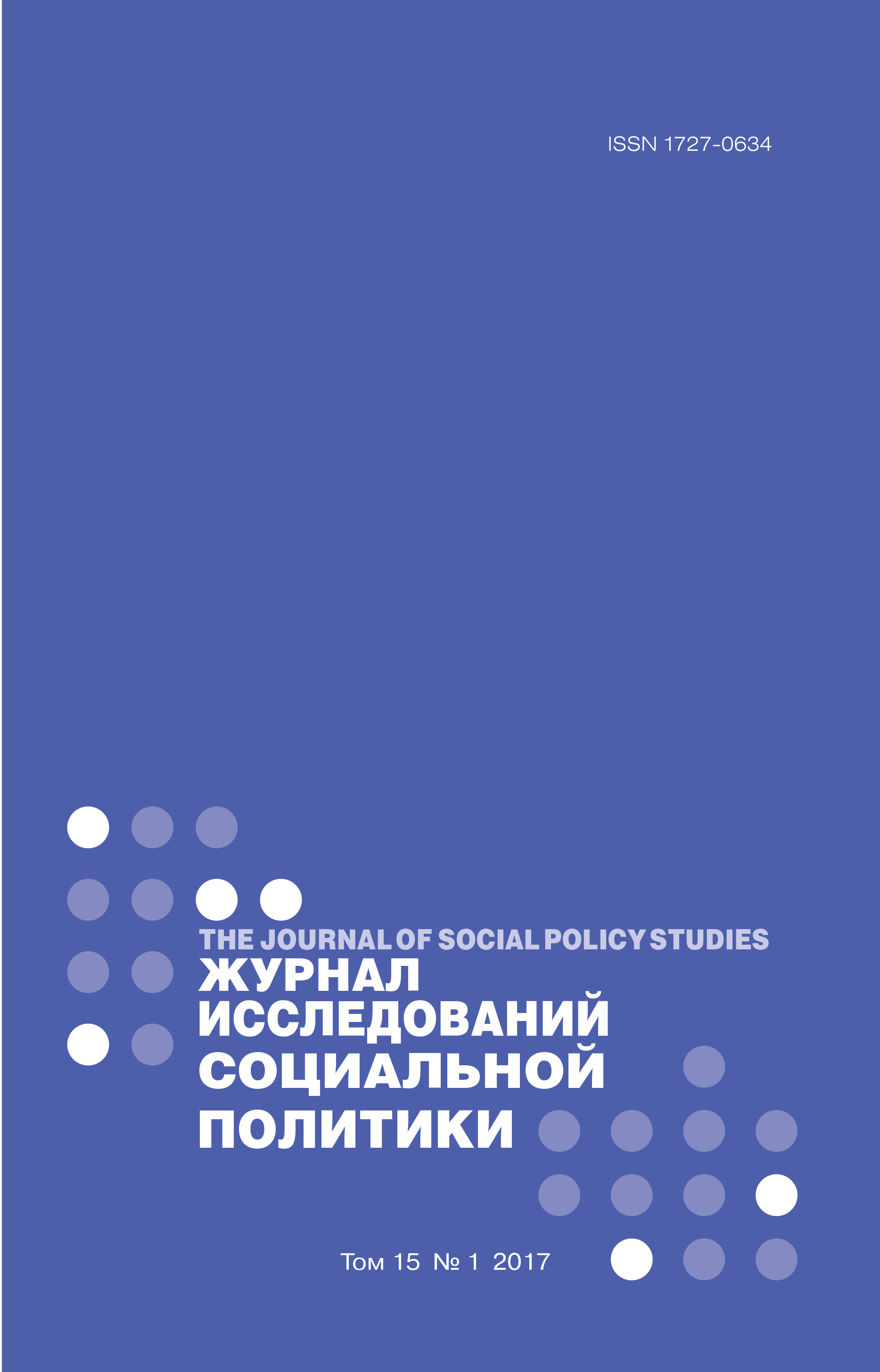The Views of Family Caregivers on the Deinstitutionalisation of Psyhiatric Care in Russia
Abstract
As with many other countries, the Russian Government has declared its intention to deinstitutionalise mental health care and provide people with mental disabilities with services that go beyond inpatient care, thus offering better prospects for integration into society. These policies have major effects not only on the lives of the people with mental disabilities but also on informal caregivers such as parents and spouses, who care for diagnosed children and partners. This study explores the views of family caregivers on the deinstitutionalisation of psychiatric care in Russia. The study is based on interpretive policy analysis. Qualitative interviews were conducted with twenty caregivers in a large Russian city. The results revealed that there was very limited support among caregivers for the reforms. They did not question the practice of institutionalised care or treatment in stand-alone psychiatric clinics, but rather took this for granted. Highlighting negative social attitudes towards the people with mental disabilities, carers claimed that stand-alone psychiatric services provide a protective environment away from the hostile outside world. Caregivers lacked knowledge about any particular social approach to mental disability or alternative ways of organising the mental healthcare system. Besides this, the caregivers were strongly disturbed by the prospect they may lose the support they receive from existing services. Although the carers criticised the current situation in psychiatric hospitals, they claimed that hospitalisation provided them with significant respite from care. All interviewees reported being overburdened, complaining of insufficient financial and social support. We suggest that caregivers in Russia have good reason to be suspicious of the reforms, which in many cases are not accompanied by proper funding, or by the development of alternative services or activities to prevent stigmatisation.















